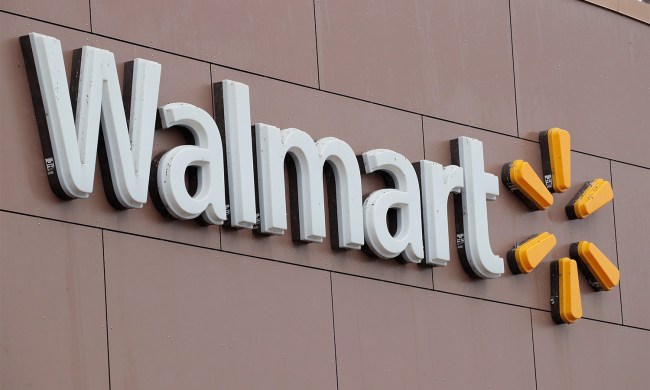A few weeks ago, I added some chai tea to my cart on Amazon, clicked the buy button, and didn’t think anything more of it.
That is, until it arrived a couple days later in a Walmart box.
I opened the box, initially not knowing what it was because I don’t usually shop at Walmart. What I found inside was the tea I’d ordered. It didn’t take much detective work to figure out what had happened: I’d ordered the tea from Amazon’s marketplace, where third-parties can sell anything from TVs to detergent. The seller that I’d bought from, named CasGlobal Commerce, accepted my order, then ordered the exact same thing from Walmart for a cheaper price, had it shipped directly to me, and pocketed the money.
It’s called “retail arbitrage,” and it’s more common than people think.
I looked on Walmart’s website and found that what I’d ordered was a whopping $19 cheaper from the retail giant than what I paid on Amazon (I’d ordered the tea in bulk). Since Walmart offers two-day free shipping on orders over $35, the seller pocketed almost $20 on a single transaction, making both me and Amazon look a bit foolish in the process.
I reached out to an Amazon spokesperson to confirm whether my suspicions were correct and ask if this was an ongoing issue for them. A spokesperson directed me to the company’s Drop Shipping Policy for Marketplace sellers, which explicitly notes that “purchasing products from another online retailer and having that retailer ship directly to customers” is not permitted. The spokesperson urged me to immediately report my incident.
“All Marketplace sellers must follow our selling guidelines, and those who do not may be subject to action including potential removal of their account,” the spokesperson said.
A quick search online revealed that I’m not the only one that this has happened to. Several people have reported ordering from Amazon but receiving their items in Walmart boxes.
Recode wrote a post about it in 2016, and others have detailed similar experiences online. Christoph Trappe wrote a blog post detailing what happened when he ordered Pull-Ups for his daughter from Amazon, only to get two separate packages from Walmart.
“Instead of getting two boxes with 52 pull-ups, we received one with 66 and one with 48,” Trappe wrote. “So basically I paid $80 for something this seller bought on Walmart for $40. As you might imagine, I’m not so happy about my deal after all.”
Customers who’ve had this happen to them say they felt duped, not only because they realize they’ve paid more for something than they should have, but because someone else profited from it.
Customers who’ve had this happen to them say they felt duped, not only because they realize they’ve paid more for something than they should have, but because someone else profited from it. They also say that it feels disingenuous on Amazon’s part, even though it’s a prohibited practice.
In fact, Amazon has recently been cracking down on those who are violating their terms of service policies, shutting down thousands of Amazon accounts in the past two weeks. But Amazon is so huge, with so many Marketplace sellers, it’s difficult for them to track every instance of retail arbitrage.
As for me, I wasn’t so much as upset about it as I was intrigued. The seller had found a way to make some money, and it wasn’t personal. Still, like the others who’ve experienced this, I’ve learned an important lesson: Regardless of how convenient Amazon is, it’s always best to comparison shop. It could save you lots of money.
I’m out of chai tea again (yes, we drink a lot of tea around our house). Guess where I bought it from? Yep. Walmart.


